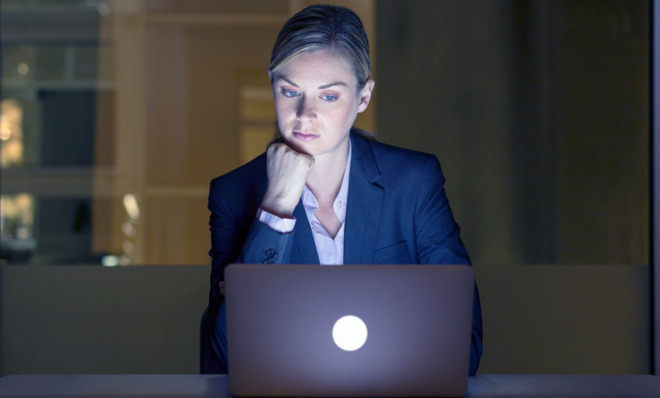The impossibility of the night shift
Many night workers get "shift-work sleep disorder." And no one knows how to treat it.

A free daily email with the biggest news stories of the day – and the best features from TheWeek.com
You are now subscribed
Your newsletter sign-up was successful

Maintaining a regular circadian rhythm is crucial for human health. But almost 15 percent of full-time salaried workers in the United States work the graveyard shift, making them susceptible to sleep-cycle issues that, according to a new study, "can jeopardize occupational health and safety by causing human errors and changes in basic biological and physiological functions."
Whether it's an emergency room doctor, a security guard, or a night editor, a person working odd hours is 30 percent more likely to fall asleep on the job or have insomnia than a day-working counterpart. That problem, called "shift-work sleep disorder," inspired a team of international researchers (the majority of them in Finland, land of the midnight sun) to figure out whether there's something these groggy employees can take to perk up — without a lot of side effects.
To conduct their study, published recently in the Cochrane Database of Systematic Reviews, the researchers surveyed 15 existing experiments that used "pharmacological" interventions, like caffeine and melatonin, on a total of 718 people who work unconventional hours. All of these previous papers looked into substances that "prevent drowsiness or improve alertness during shift work" as well as those that "improve sleep quality or sleep length."
The Week
Escape your echo chamber. Get the facts behind the news, plus analysis from multiple perspectives.

Sign up for The Week's Free Newsletters
From our morning news briefing to a weekly Good News Newsletter, get the best of The Week delivered directly to your inbox.
From our morning news briefing to a weekly Good News Newsletter, get the best of The Week delivered directly to your inbox.
After analyzing other researchers' work on the matter, the team concluded that more research needs to be done.
"There is low-quality evidence that melatonin improves sleep length after a night shift but not other sleep quality parameters," they wrote. "Both modafinil and armodafinil increase alertness and reduce sleepiness to some extent … but they are associated with adverse events. Caffeine plus naps reduces sleepiness during the night shift, but the quality of evidence is low." Finally, the paper came to this: "Both sleep and alertness promoting agents have potentially serious adverse effects. Therefore, we need more trials to determine the beneficial and harmful effects of these drugs."
Overall, the authors found that both over-the-counter and prescription medications are largely useless for bleary-eyed shift workers trying to overcome the consequences of working odd hours — and that in some cases, popping a pill does more harm than good.
So if you're among the millions just suiting up for work while the rest of us are out at happy hour, either hang in there until scientists figure out how to keep you up in a healthy, reasonable way — or consider getting a day job.
A free daily email with the biggest news stories of the day – and the best features from TheWeek.com
Pacific Standard grapples with the nation's biggest issues by illuminating why we do what we do. For more on the science of society, sign up for its weekly email update or subscribe to its bimonthly print magazine.
More from Pacific Standard...
-
 Quentin Deranque: a student’s death energizes the French far right
Quentin Deranque: a student’s death energizes the French far rightIN THE SPOTLIGHT Reactions to the violent killing of an ultra-conservative activist offer a glimpse at the culture wars roiling France ahead of next year’s elections.
-
 Secured vs. unsecured loans: how do they differ and which is better?
Secured vs. unsecured loans: how do they differ and which is better?the explainer They are distinguished by the level of risk and the inclusion of collateral
-
 ‘States that set ambitious climate targets are already feeling the tension’
‘States that set ambitious climate targets are already feeling the tension’Instant Opinion Opinion, comment and editorials of the day